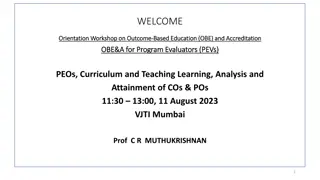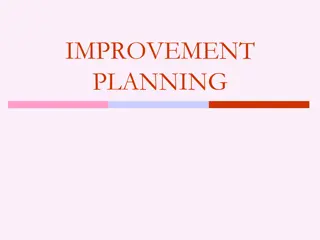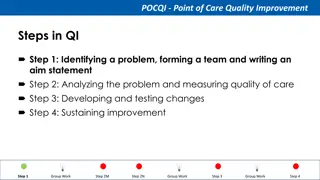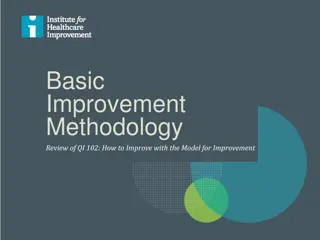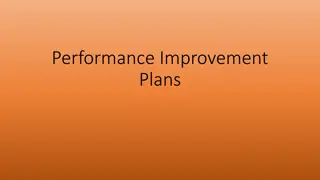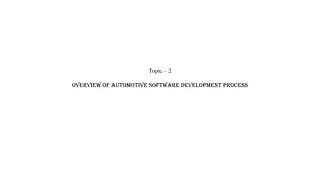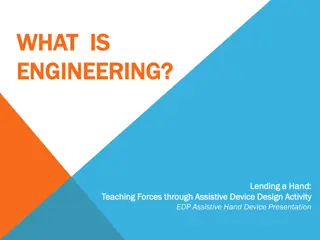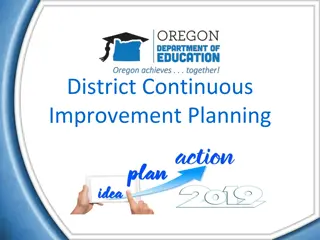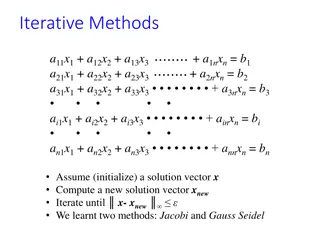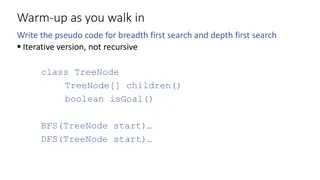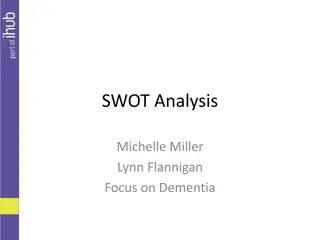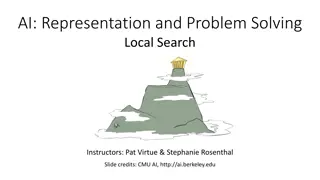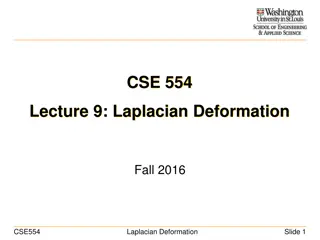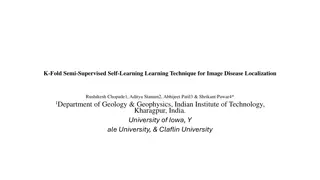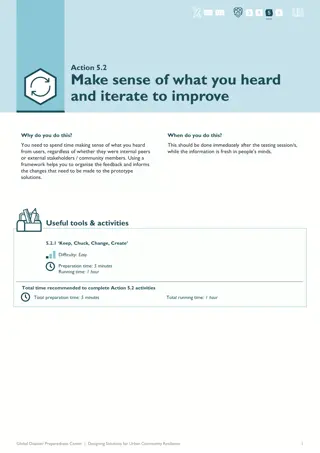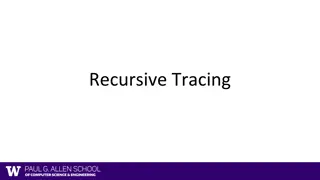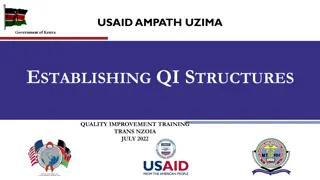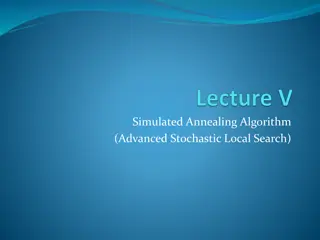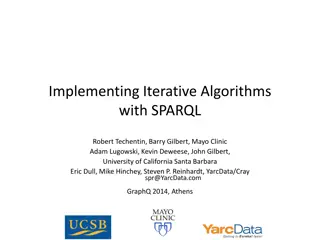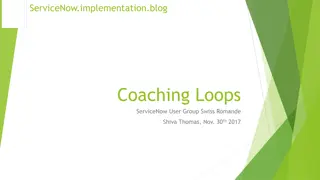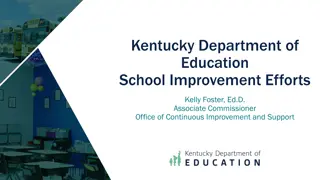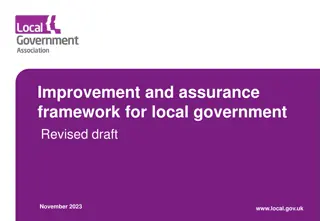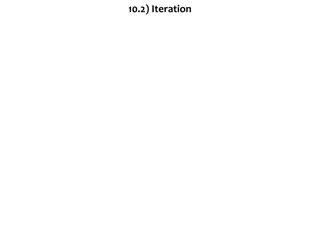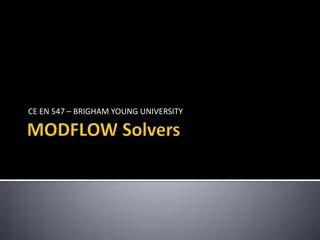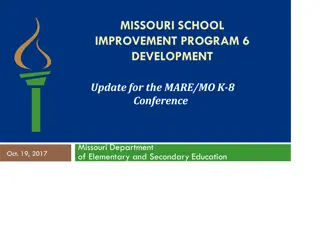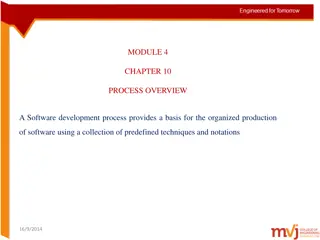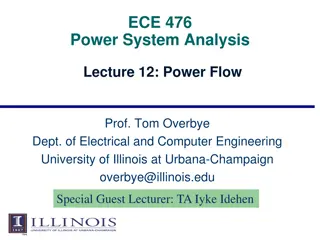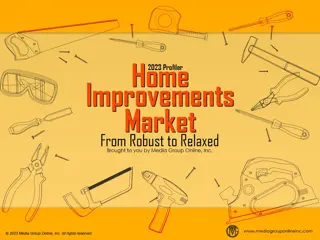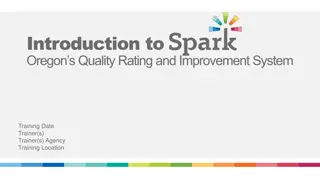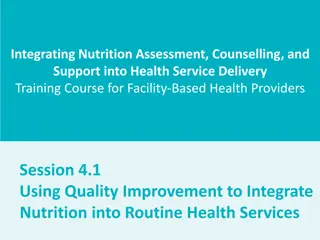Integrated Improvement Plan 2023-2024
The Integrated Improvement Plan 2023-2024 focuses on establishing stable leadership and governance structures, enhancing communication and engagement efforts, and implementing quality improvement methodologies. Key milestones include filling substantive executive leadership positions, developing gov
0 views • 13 slides
Resource Allocation Review Webinar: Enhancing School Improvement Practices
Delve into the essential aspects of Resource Allocation Reviews in the educational setting through this webinar provided by the Office of School and District Improvement. Gain insights on the requirements, tools, and significance of conducting Resource Allocation Reviews to enhance school improvemen
0 views • 25 slides
Understanding Outcome-Based Education (OBE) and Accreditation for Program Evaluators Workshop
Explore the framework of OBE and accreditation, focusing on defining program outcomes, assessing outcomes, and continuous improvement through evaluation guidelines and reports. Learn about quality improvement in education through curriculum design and attainment analysis. Discover how to measure stu
4 views • 115 slides
Comprehensive Guide to Improvement Planning Stages and Tools
Explore the key stages of improvement planning, including self-assessment, performance evaluation, documentation, measurement, and planning. Learn about different tools for prioritizing, problem understanding, analysis, idea generation, and implementation to enhance organizational effectiveness. Div
6 views • 10 slides
California Forest Improvement Program (CFIP) Overview
The California Forest Improvement Program (CFIP) aims to promote investments in forestlands to ensure timber supplies, employment, and economic benefits while enhancing the forest resource. Funding sources, program objectives, eligibility requirements, and reimbursement details are covered in the pr
1 views • 22 slides
Crafting Success How Effective Persona Creation Drives Design Success
Consagous Technologies UI UX Experts has ability to create experiences that resonate with users on a deep and personal level. Effective persona creation is the cornerstone of this success, enabling designers to understand their audience, guide design decisions, foster empathy, and drive iterative im
2 views • 2 slides
Point of Care Quality Improvement (POCQI) Steps in Quality Improvement
POCQI involves four key steps: identifying a problem, analyzing the problem, developing and testing changes, and sustaining improvement. It emphasizes reviewing data, prioritizing problems, forming effective teams, and writing clear aim statements. Teamwork is crucial for healthcare improvement as i
0 views • 62 slides
Issues and Algorithms in Server Software Design
The content discusses fundamental issues in server software design such as connectionless vs. connection-oriented access, stateless vs. stateful applications, and iterative vs. concurrent server implementations. Various server algorithms like iterative and concurrent servers are explained with their
3 views • 44 slides
Improving Quality with the Model for Improvement
In this content, we delve into the Model for Improvement methodology, focusing on key aspects such as setting aims, choosing measures, developing and testing changes. It discusses the three questions in the Model, elements of an effective aim statement, types of measures, and utilizing change concep
1 views • 27 slides
Utility Performance Improvement Strategies
Effective utility performance improvement involves benchmarking, selecting key performance indicators (KPIs) aligned with strategy, developing improvement plans, and implementing initiatives to achieve targets. This process entails identifying focus areas, setting improvement targets, and implementi
0 views • 37 slides
Comprehensive Overview of Numerical Linear Algebra Methods for Solving Linear Systems
Explore numerical linear algebra techniques for solving linear systems of equations, including direct and iterative methods. Delve into topics like Gaussian elimination, LU factorization, band solvers, sparse solvers, iterative techniques, and more. Gain insights into basic iterative methods, error
6 views • 12 slides
ARHOME: Arkansas Health & Opportunity for Me Demonstration Project
The ARHOME project in Arkansas aims to improve health outcomes and economic independence by transitioning Medicaid recipients to private insurance while maintaining eligibility and federal funding. With measurable goals focused on health improvement and poverty reduction, ARHOME seeks to drive quali
0 views • 16 slides
Overview of Automotive Software Development Process
The development of software in the automotive industry is essential due to the increasing complexity of vehicles. This process involves requirements gathering, system design, component development, integration testing, validation, calibration, release, and maintenance. Automotive-specific considerat
0 views • 5 slides
Boat Building Challenge: Build, Float, and Win!
Engage in a boat building challenge where you must construct a boat capable of floating as many pennies as possible within specific dimensions and a budget. Compete in a Float-off and calculate your score based on the number of pennies floated relative to the total cost. Present your results and dis
0 views • 7 slides
Solving Maximum Contiguous Subarray Sum Problem with Dynamic Programming
Explore the concept of finding the maximum contiguous subarray sum using dynamic programming as an improvement over divide and conquer algorithms. Learn the steps of defining the objective, writing recurrences, designing memoization structures, and implementing iterative algorithms. Delve into the d
1 views • 32 slides
Understanding Engineering: Concepts and Processes
Engineering is the application of science, math, and technology to design solutions for everyday problems, benefiting society. The Engineering Design Process (EDP) involves defining problems, researching, brainstorming solutions, building prototypes, testing, communicating designs, and redesigning a
0 views • 28 slides
Oregon District Continuous Improvement Planning Process
Explore the key components of Oregon's district continuous improvement planning process, including objectives, executive memos, ODE commitments, and the essential elements that all Oregon districts must incorporate into their continuous improvement plans. Learn about the shifts in the overarching vi
0 views • 9 slides
Understanding Iterative Methods in Linear Algebra
Explore the concepts of iterative methods such as Jacobi and Gauss-Seidel for solving systems of linear equations iteratively. Understand conditions for convergence, rate of convergence, and ways to improve convergence speed. Delve into iterative schemes in matrix forms, convergence criteria, eigenv
0 views • 39 slides
AI Search Algorithms: BFS and DFS Pseudo-code Iterative Version
Explore the iterative versions of Breadth First Search (BFS) and Depth First Search (DFS) with pseudo-code examples implemented for class TreeNode. Understand the concept of TreeNode, children() function, isGoal() method, and apply BFS and DFS starting from TreeNode start.
0 views • 53 slides
Quality Improvement Strategies for Dementia Care Enhancement
Explore the importance of improvement initiatives in dementia care through SWOT analysis, experience sharing, and fundamental concepts. Discover why adaptability is key to survival and how quality improvement differs from research and performance. Learn about executing QI ideas, the Model for Improv
0 views • 23 slides
Understanding Local Search Algorithms for Problem Solving
Dive into the world of local search algorithms for problem solving with a focus on iterative improvement, hill climbing, simulated annealing, and more. Learn how these algorithms are applied to identification, planning, and optimization problems, and explore their completeness and optimality. Discov
0 views • 30 slides
Laplacian Deformation in Engineering and Applied Science
Laplacian deformation is a technique used in non-rigid registration to account for shape variance and improve fitting between source and target shapes. This method involves minimizing the distance and distortion terms to achieve accurate alignment. Intrinsic and extrinsic methods are discussed, wher
0 views • 53 slides
Enhancing Image Disease Localization with K-Fold Semi-Supervised Self-Learning Technique
Utilizing a novel self-learning semi-supervised technique with k-fold iterative training for cardiomegaly localization from chest X-ray images showed significant improvement in validation loss and labeled dataset size. The model, based on a VGG-16 backbone, outperformed traditional methods, resultin
0 views • 5 slides
Iterative Feedback Framework for Prototype Improvement
The iterative feedback framework involves making sense of user feedback using the Keep, Chuck, Change, Create (KCCC) model to iterate and enhance prototype solutions. This process helps organize input from testing sessions, informing necessary modifications for better outcomes. The framework emphasi
1 views • 26 slides
Enhancing Quality Improvement in Health and Social Care
Explore how to support innovation and improvement at all levels within the Health and Social Care sector through the Quality Attributes Framework (QAF). Discover eLearning programs, face-to-face courses, and consultancy services aligned with the framework to drive quality improvement. Put people fir
0 views • 22 slides
Understanding Recursive and Iterative Factorials through Tracing
This content provides an in-depth exploration of recursive and iterative factorial functions through tracing examples. The explanations are accompanied by visual aids to help conceptualize the iterative and recursive processes of calculating factorials. By comparing the two methods side by side, rea
0 views • 7 slides
Establishing Quality Improvement Structures in Healthcare Settings
Learn about the importance of Quality Improvement Teams (QITs) and Work Improvement Teams (WITs) in healthcare facilities, their formation processes, roles, and responsibilities. Discover how QITs and WITs contribute to enhancing decision-making, commitment to quality improvement, and overall health
0 views • 35 slides
Understanding Simulated Annealing Algorithm: A Stochastic Local Search Approach
Simulated Annealing Algorithm is a powerful optimization technique that helps prevent getting stuck in local minima during iterative improvement. By accepting uphill moves, changing neighborhood structures, and modifying objective functions strategically, simulated annealing allows exploring a broad
0 views • 34 slides
Implementing Iterative Algorithms with SPARQL
This comprehensive guide explores the implementation of iterative algorithms with SPARQL, focusing on YarcData/Cray's approach to using these algorithms. It covers YarcData's interest in graphs, the Urika appliance, iterative algorithms in machine learning, implementation approach, and algorithms im
1 views • 12 slides
Understanding Coaching Loops for Improved Performance
Coaching loops are a method of enhancing performance by providing iterative feedback to guide individuals towards high performance. Unlike traditional feedback methods, coaching loops allow for real-time influence on the process outcome, improving overall effectiveness. By implementing the Kepner-Tr
0 views • 24 slides
Kentucky Department of Education School Improvement Efforts
The Kentucky Department of Education focuses on school improvement efforts through Comprehensive Support and Improvement (CSI), Targeted Support and Improvement (TSI), and Additional Targeted Support and Improvement (ATSI) programs. Schools undergo a statutory and regulatory process as per state law
0 views • 7 slides
Improvement and Assurance Framework for Local Government - November 2023
Local authorities play a crucial role in their own performance and improvement, guided by the sector-led improvement approach. This framework emphasizes accountability, transparency, and continuous improvement, supported by tools and resources provided by the LGA. Assurance and accountability mechan
0 views • 18 slides
Iterative Root Approximation Using Natural Logarithm
The content covers iterative root approximation using natural logarithm in solving equations. It explores finding roots by iterative formulas and demonstrates calculations to reach approximate values. The process involves selecting intervals to show correct values and ensuring continuity for accurat
0 views • 14 slides
Understanding Iterative Solvers in MODFLOW
In this content, you will learn about the working of iterative solvers, solver parameters, troubleshooting convergence issues, and various solver algorithms in MODFLOW. The iterative tweaking of starting head values, different solver codes like SIP, PCG2, GMG, and their characteristics are explained
0 views • 21 slides
Missouri School Improvement Program: Development Update
The Missouri School Improvement Program (MSIP) focuses on improvement drivers, policy goals, development teams, timeline, emergent themes, performance standards, and process standards to enhance the academic achievement, readiness of graduates, and overall educational experience in schools and distr
0 views • 43 slides
Software Development Process Overview
A software development process provides a structured approach for creating software using predefined techniques and stages such as system conception, analysis, system design, class design, implementation, testing, training, deployment, and maintenance. It involves stages like domain analysis, applic
0 views • 39 slides
Power System Analysis: Lecture on Power Flow
Lecture 12 on Power Flow Analysis in Power Systems covers the use of power balance equations when analyzing complex power consumption and generation. It explains the derivation of real power balance equations for iterative solutions in power flow analysis. The lecture highlights the need for iterati
0 views • 30 slides
Home Improvement Market Trends & Forecasts 2023
The once booming home improvement market is projected to decline in 2023 due to inflation, higher prices, and job market softening. Insights from 2022 show a surge in home improvement projects among new homebuyers. The impact of the housing market on home improvement spending is significant, while r
0 views • 10 slides
Understanding Oregon's Quality Rating and Improvement System (QRIS) Training Overview
This training provides an in-depth look at Oregon's Quality Rating and Improvement System (QRIS), covering topics such as the Quality Improvement Plan, participation in Spark, program supports and incentives, portfolio submission, Spark partners, and more. Gain valuable knowledge and tools to enhanc
0 views • 45 slides
Integrating Nutrition Assessment and Counseling: Quality Improvement in Health Services
This training course focuses on integrating nutrition assessment, counseling, and support into routine health services using quality improvement methods. Participants will learn to explain the concept of quality improvement, develop a plan for integrating nutrition services, and understand key princ
0 views • 32 slides


